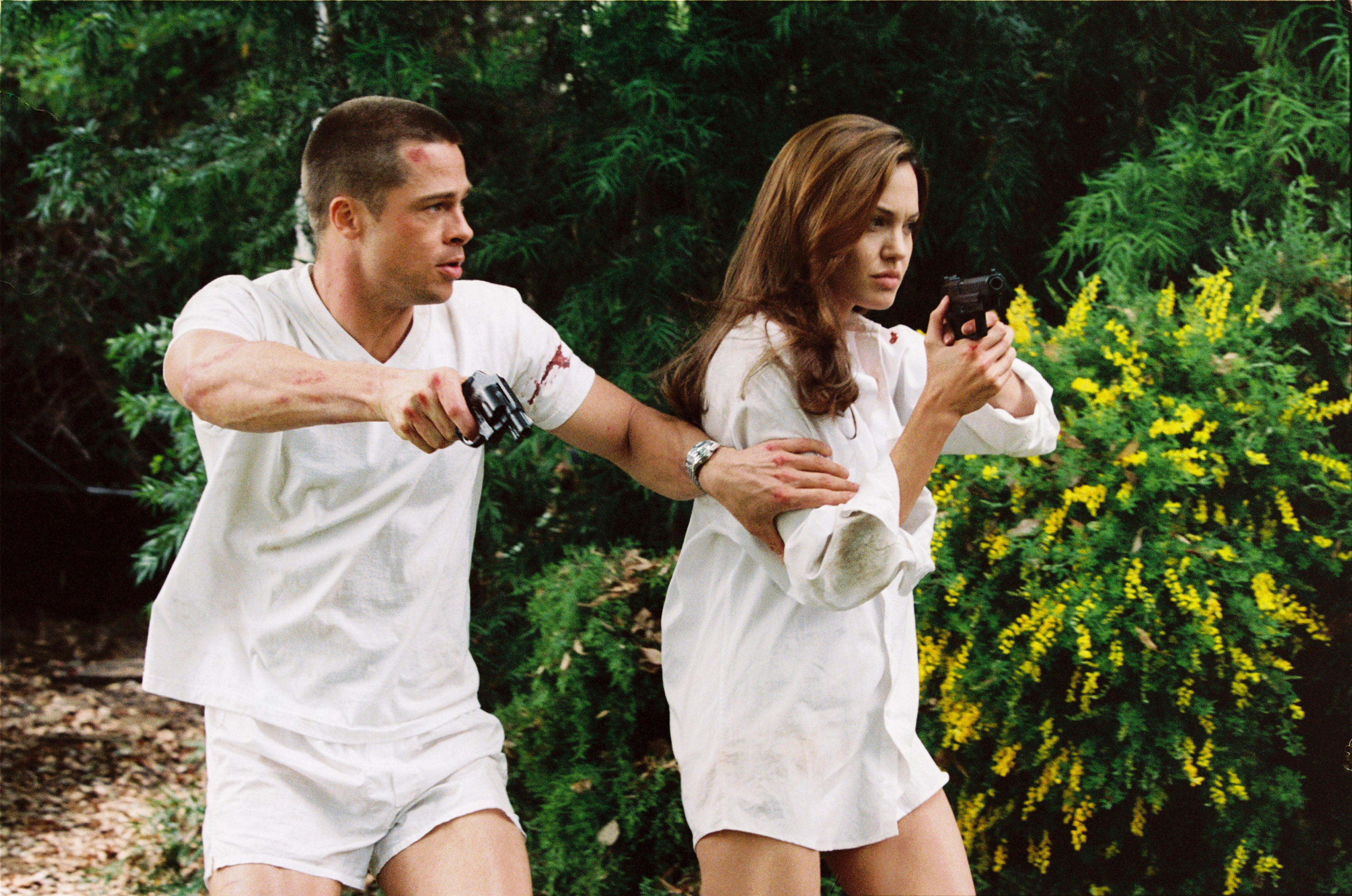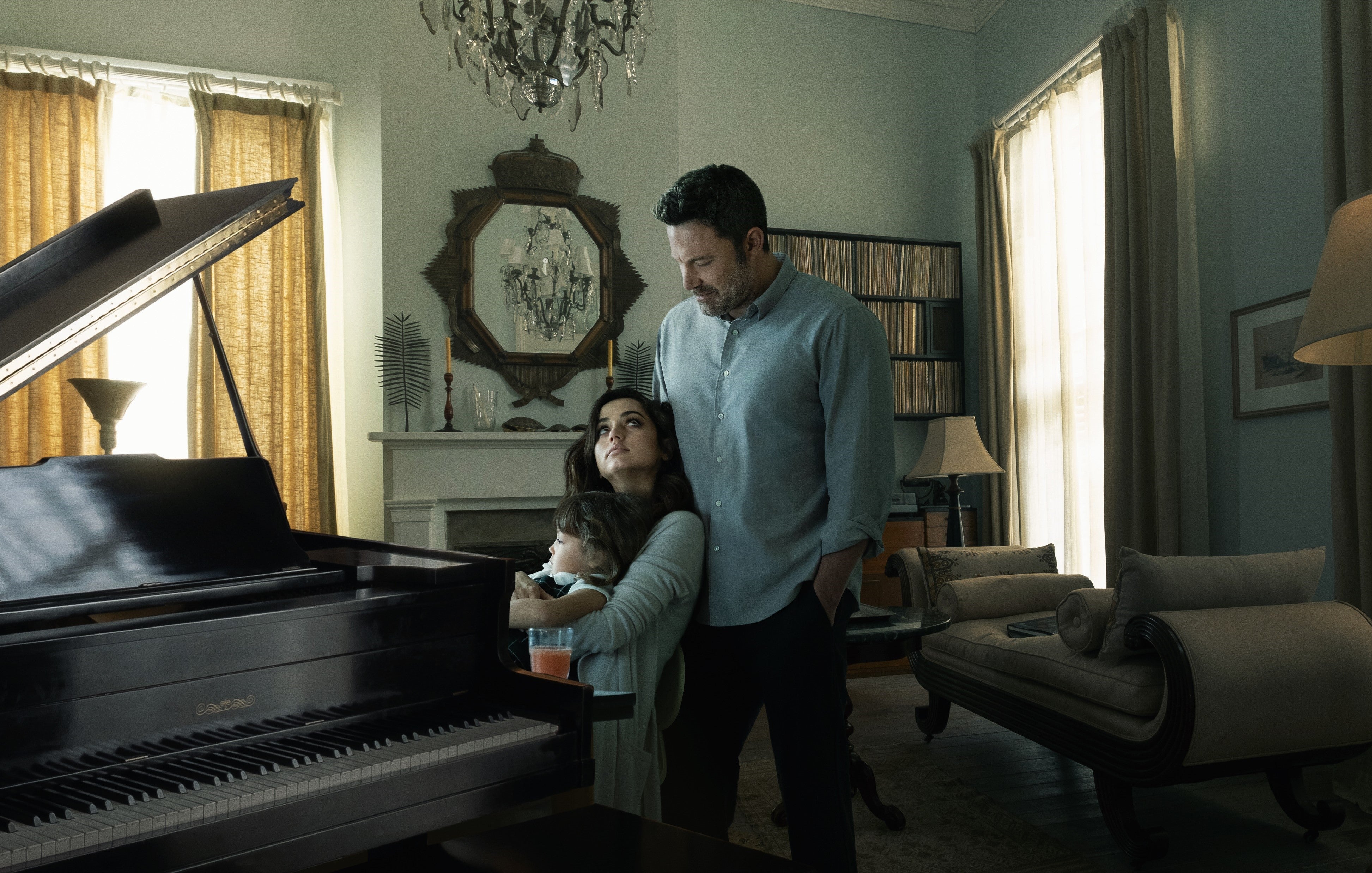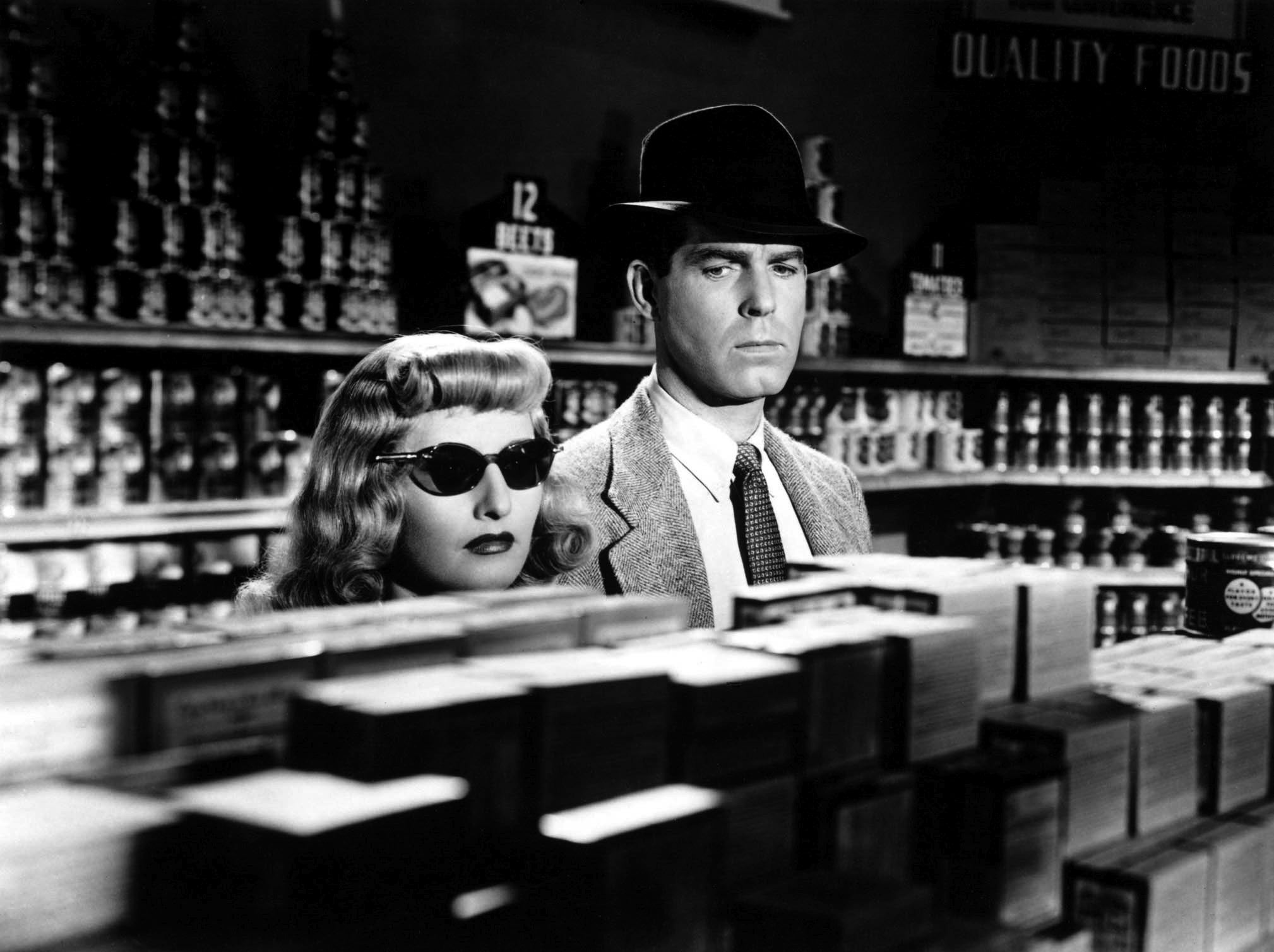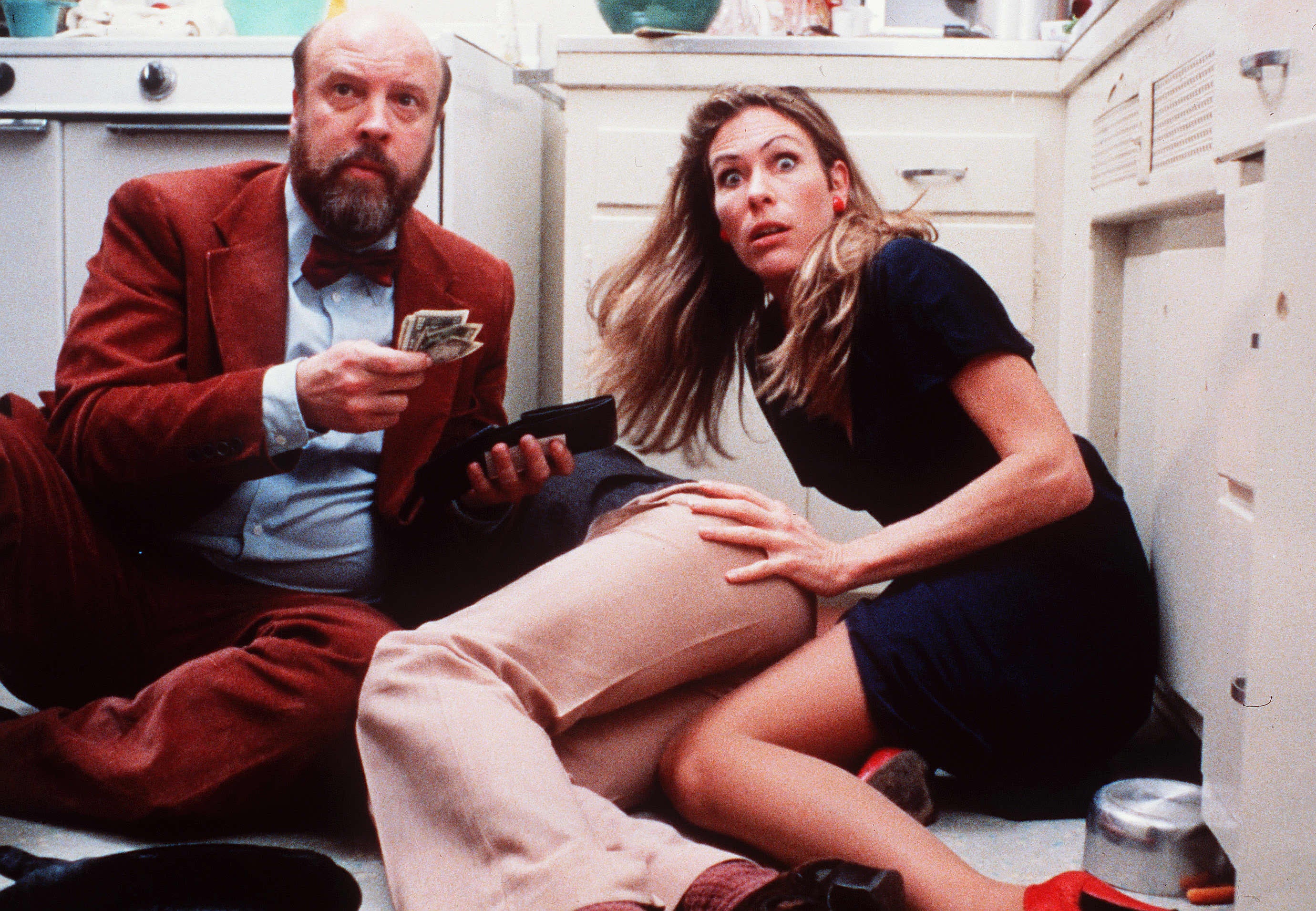Till death us do part: Looking back at the most murderous marriages in cinema
Ana de Armas and Ben Affleck are starring in a new erotic thriller, ‘Deep Water’, as a couple whose intimacy depends on killing. But, writes Geoffrey Macnab, many more macabre unions came before them

You might want to become king of Scotland. You might be furious and humiliated at all your wife’s affairs. You might need your lover to knock off your husband for his insurance policy. Cinema history is full of murderous couples – and of marriages that leave bloody piles of corpses in their wake.
Denzel Washington and Frances McDormand are currently on Apple TV in Joel Coen’s The Tragedy of Macbeth, as the spouses conspiring to kill King Duncan (Brendan Gleeson). Coen reinterprets Shakespeare’s tragedy as a marital melodrama about a couple who turn to violence because they haven’t managed to start a family. Lady Macbeth can’t provide her husband with a son but she validates their marriage by helping him topple the monarch and usurp his place.
“It is her personal tragedy that fuels her ambition to give her husband the crown, because she has not been able to give him an heir. For me, that is the essence of the character,” McDormand recently told IndieWire.
An even more bizarre and deadly relationship between a husband and wife is portrayed in Adrian Lyne’s film version of the Patricia Highsmith novel, Deep Water, released on Amazon next week. Ana de Armas (No Time to Die) plays the headstrong, beautiful and promiscuous young Melinda Van Allen. Ben Affleck is her oddball older husband, Vic. He is rich but repressed and voyeuristic – and he shares author Highsmith’s love of snails, which he keeps as pets. The only way this sluggard of a man can show his passion for Melinda is seemingly by acts of reckless homicide. Murder becomes the crutch on which their marriage depends.
The premise behind Deep Water is both twisted and absurd. Melinda goes through boyfriends at a bewildering pace, never wasting time grieving for an old flame who has vanished when a new one flickers up in front of her.
Movies about murderous marriages can be traced back far beyond Deep Water to the very earliest days of cinema. Many silent melodramas were based around crimes of passion in which jealous husbands killed their wives’ lovers. In DW Griffith’s The Love Flower (1920), for example, Thomas Bevan (George MacQuarrie) catches his beloved with another man. The man pulls a gun. They fight. The man is killed. Bevan is held responsible and has to flee. In Tod Browning’s luridly overcooked West of Zanzibar (1928), Lon Chaney’s character, the magician Phroso (aka “Dead Legs”), spends years plotting revenge against Crane (Lionel Barrymore), the man who cuckolded him, left him paralysed and caused his wife’s death.
There are also plenty of Bluebeard-style films in which naive young women fall in love with older men whom they discover, far too late, don’t at all have their wellbeing at heart. In Alfred Hitchcock’s Suspicion (1941), for example, Joan Fontaine plays an ingenue who becomes convinced her dashing husband (Cary Grant) is planning to kill her.
Fritz Lang’s Secret Beyond the Door… (1947) has a similar set-up. “This is no time to think of danger, this is my wedding day,” Celia (Joan Bennett) says in the voiceover that opens the film – but her marriage is precisely what puts her at risk. She is a “20th-century Sleeping Beauty”, a wealthy American girl who has “lived her life wrapped in cotton wool”. Her new husband Mark (Michael Redgrave) is a wealthy architect harbouring very dark secrets. They move into his vast, mausoleum-like home – one of those houses in which, as Celia soon discovers, “skeletons come rattling out of every cupboard”. Bizarrely, Mark “collects rooms” in which murders took place. (These aren’t reconstructions but the actual bed chambers put together macabre object by macabre object.) Now, Mark seems to have reserved a murder room for her.
Lang borrows heavily both from Hitchcock’s Rebecca (the house seems haunted by the presence of Mark’s previous wife who died in mysterious circumstances) and from Freud. The dream sequences, flashbacks and swirling Miklós Rózsa music add to the disorienting effect. “In many cases, the murder of a girlfriend or a wife has its psychological roots in an unconscious hatred for the mother,” says a psychology student who just happens to be passing by, letting the audience know why Mark is behaving so strangely.

Complementing the films about deranged men preying on their younger wives are those in which the wives conspire to kill their husbands. Émile Zola’s 1868 novel Thérèse Raquin, which has been adapted for the screen several times itself, is one of the key inspirations for all those hardboiled Hollywood film noir thrillers in which Lana Turner or Barbara Stanwyck recruit their lovers in some murderous plot and then suffer immense psychological torment as a result.
“I’m rotten to the heart,” Phyllis Dietrichson (Stanwyck) tells her lover, the insurance salesman Walter Neff (Fred MacMurray) in Billy Wilder’s Double Indemnity (1944). Neff is portrayed as being almost as much of a victim as Dietrichson’s husband, whom he kills on her behalf. She is the femme fatale, entrapping him with a promise of sex and money. An alternative reading is that he pushed her into a crime she would never have committed otherwise. “I loved you, Walter, and I hated him but I wasn’t going to do anything about it, not until I met you,” she tells Walter when they meet in a suburban supermarket after the killing. “We went into this together and we’re coming out at the end together.”
That’s not what happens, though. Even when the man ends up on Death Row, the storytelling invariably has a misogynistic undertow and the woman is blamed for his predicament.
One of the fascinations about movies in which husbands and wives become killers is the banality of the protagonists’ lives. They’re often suburban, middle-class types or they come from ordinary backgrounds.

In James M Cain’s 1934 novel, The Postman Always Rings Twice, Cora, the young wife who plots with drifter Frank to kill her cafe owner husband, describes herself and Frank as “just two punks”. Their love is like “a big airplane engine, that takes you through the sky, right up to the top of the mountain. But when you put it in a Ford, it just shakes it to pieces. That is what we are, Frank, a couple of Fords. God is up there laughing at us.”
Cain wasn’t just drawing on Émile Zola. He had been partly inspired to write both The Postman Always Rings Twice and his later novel Double Indemnity by the real-life case of Ruth Snyder and her corset salesman lover, Judd Gray who, in 1927, had finally murdered Snyder’s husband Albert, having made several botched earlier attempts. The following year, both were sent to the electric chair.
Cain’s novels inspired several movies. These, though, were films about husbands and wives murdering one another. You can find an equally rich strain of filmmaking in which spouses go on killing sprees together, sometimes for the strangest reasons. For example, in Paul Bartel’s cult comedy hit, Eating Raoul (1982), a prudish, middle-class Californian couple (Bartel and Mary Woronov) come up with a bizarre scheme to murder rich swingers to finance the restaurant they’ve long dreamed of opening. In Mr & Mrs Smith (2005), Brad Pitt and Angelina Jolie play a married couple who both work as professional assassins – but whose identities are a secret. (Inevitably, they’re eventually assigned to kill each other.)

It’s a long way from the glamour of Brad and Angelina to the macabre antics of the so-called “lonely hearts killers”, Martha Beck and Raymond Fernandez, the real-life couple who preyed on single women they met through personal ads. They would pose as brother and sister. Fernandez would woo and, it’s claimed, sometimes wed his victims before robbing and killing them. They’ve inspired several very ghoulish films, among them Mexican director Arturo Ripstein’s Deep Crimson (1996) and Leonard Kastle’s The Honeymoon Killers (1970).
Deep Water, then, is just the latest in a very long list of movies about murderous marriages. This is universal subject matter that appeals to filmmakers everywhere. It is addressed in French (Les Diaboliques), Italian (Osessione), British (Gaslight), and Chinese movies (A Woman, a Gun and a Noodle Shop). Meanwhile, from Gone Girl to How to Murder Your Wife, you’ll find plenty of Hollywood pictures in which husbands, wives and their lovers are either busy killing each other or plotting to do so. Few genres are more flexible either. The storytelling can run the gamut from high tragedy to low farce – and yet the human dynamics are unchanging. Whether in the silent era or the social media age, protagonists are driven by the same basic instincts: jealousy, greed and lust.
These cautionary tales can be done on the cheap, as claustrophobic chamber pieces, or as lurid, big budget melodramas. They come in every form conceivable. There are period movies, for example Florence Pugh in a crinoline killing her abusive husband in Lady Macbeth (2016); comedies, among them Crimes and Misdemeanours (1989) in which an upstanding husband has his mistress murdered; dark psycho-dramas; TV movies about serial killer couples; and steamy thrillers.
Such films add a very ironic resonance to the wedding day vow, “till death us do part”. In their warped world, the nuptials are a first step into hell and the killing soon then follows.
‘The Tragedy of Macbeth’ is out now on Apple TV. ‘Deep Water’ is available on Prime Video on 18 March






Join our commenting forum
Join thought-provoking conversations, follow other Independent readers and see their replies
Comments